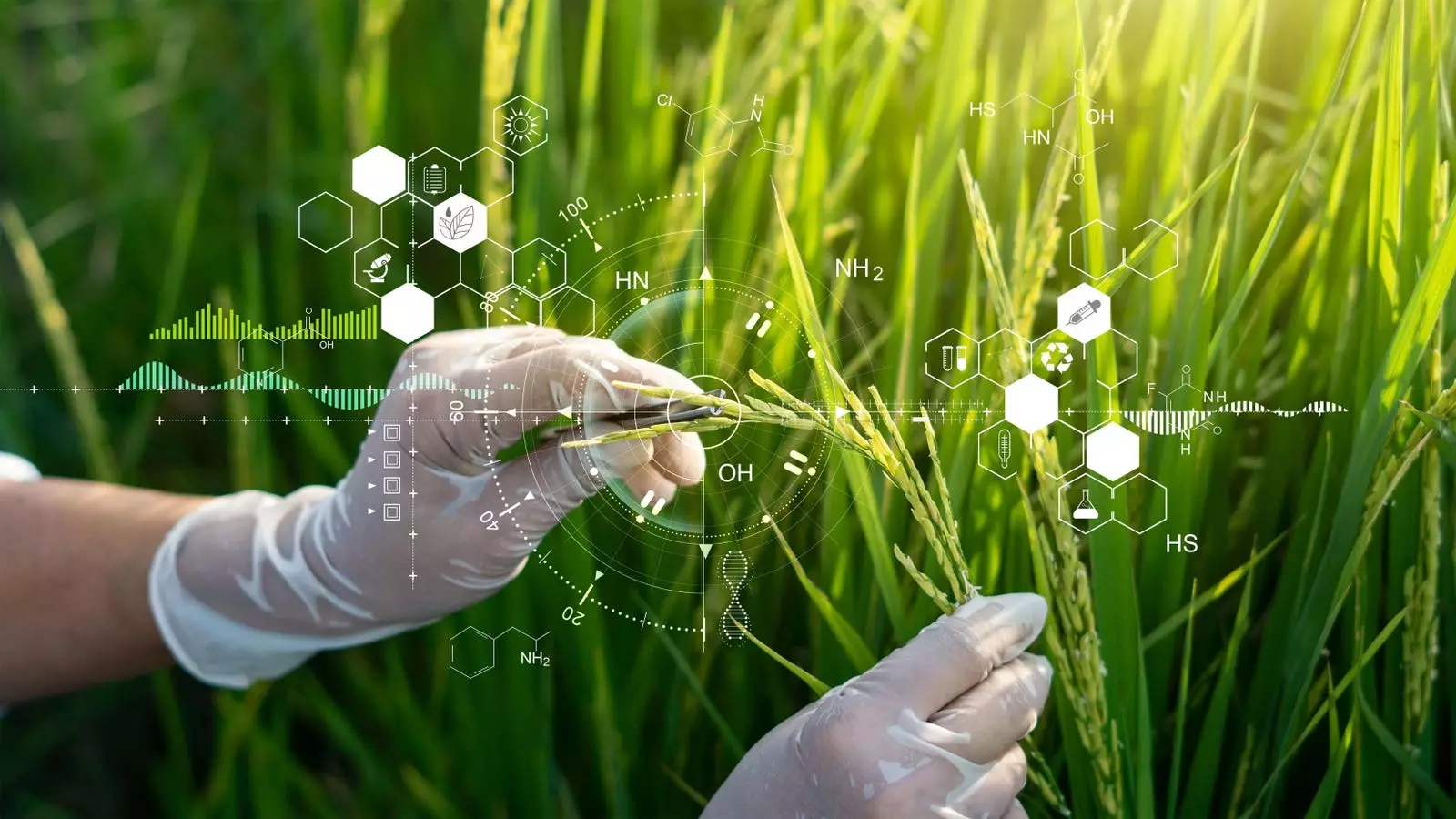As we step into 2025, the global food industry is grappling with a multitude of challenges that threaten both food security and sustainability. Factors such as skyrocketing prices of staples like coffee and cocoa, alongside geopolitical shifts in governance, have intensified the uncertainty that looms over agricultural dynamics. Yet, amid these adversities, a silver lining emerges in the form of technological innovation, which many experts believe will be pivotal for the future of food and agriculture.
At the heart of sustainable agricultural practices is the pivotal role of soil health. With about one-third of agricultural land facing degradation, restoring the vitality of soil has become a pressing matter for ensuring food security. Biotechnological advancements are carving out groundbreaking pathways to address this issue. As Sarah Sclarsic, Co-Founder of Voyager Ventures, emphasizes, biotechnology is paving the way for eco-friendly alternatives to chemical pesticides and fertilizers, drastically improving farming practices.
Companies like Andes.bio and Concert Bio are pushing the envelope further by merging biotechnology with artificial intelligence to enhance soil quality and increase crop productivity. These startups are not operating in isolation; they are supported by firms like Trace Genomics and EarthOptics, which provide critical data analytics to better understand and manage soil health. Enhanced precision agriculture technologies further amplify these benefits. As Chuck Templeton from S2G Ventures explains, sophisticated machinery, coupled with detailed data analytics, equips farmers with the information they need to optimize resource utilization effectively.
As chronic illnesses such as obesity and cardiovascular disease continue to plague the U.S. population, the food industry sees an urgent need to bridge the gaps between nutrition science and biotechnology. Innovative solutions like GLP-1-based therapies, which mimic natural hormones that influence appetite, have gained traction. This technological leap not only challenges traditional dietary perspectives but also shifts the food processing landscape.
Companies like Thistle and Lembas Bio are integrating these scientific advancements into their products, creating options that align with health-focused consumer demands. This trend signals a move toward more nourishing and protein-rich food offerings, echoing sentiments from industry leaders like Brian Bernstein of Rich’s Corporation. Moreover, platforms like Pom and Sylvan Health are incorporating tailored nutritional strategies, advocating a more holistic approach to food consumption that inherently endorses health.
Given the pressures facing traditional agriculture from climate change and fluctuating market demands, biotechnology emerges as a vital ally in diversifying food production methods. Innovations in molecular farming and fermentation showcase the potential to create a more resilient food ecosystem. As observed in the volatility of markets—with prices for essential goods soaring in 2024—companies are eager to explore robust alternatives for vulnerable crops like coffee and cocoa.
For instance, Sunflower Therapeutics is transitioning its pharmaceutical-grade fermentation methods to food production. Such companies are not merely experimental; they are positioned to offer practical, economically viable solutions that can reshape the landscape of food manufacturing, per insights from experts like Steve Molino of Clear Current Capital. In this volatile environment, investments in companies like De Novo Foodlabs and Alpine Bio are seen as critical steps toward establishing more sustainable food systems.
Amid persistent labor shortages and a capricious supply chain landscape, the potential of robotics and advanced AI comes to the forefront. The food service industry faces a daunting statistic, with 82% of businesses seeking to fill positions. As outlined by Rosie Wardle of Synthesis Capital, this gap highlights the urgency for technological solutions that enhance operational efficiency from farm to plate.
Innovative startups, such as 4AG Robotics and Chef Robotics, are transforming food production and distribution workflows. Their advanced AI-driven technologies aim to close the workforce gap by automating labor-intensive tasks. However, as highlighted by various investors, these technologies must prove their cost-effectiveness to secure widespread adoption across the industry.
Investor sentiments around food technology in 2025 appear markedly more hopeful compared to previous years. Various factors indicate that crucial corporate activity and mergers & acquisitions (M&A) could signal a renaissance in this sector. According to Sara Nolet of Tenacious Ventures, as technology matures and valuations stabilize, organizations are considering external innovation as a viable avenue for growth.
Predictions of an active M&A landscape are bolstered by expectations of decreasing interest rates and pent-up demand following a stagnation period for investments. Jennifer Stojkovic of Joyful VC emphasizes the necessity of substantial governmental backing to propel food technology innovations beyond their current limits. While there is optimism surrounding the convergence of private investments and potential governmental support, the realization of transformative change in the food sector will likely require a collaborative effort across various stakeholders.
The food industry’s landscape in 2025 is characterized by its challenges and the emerging opportunities that stem from technological innovations. As the sector pivots to adapt to changing consumer needs, environmental pressures, and economic realities, it stands at a critical juncture. With biotechnology, precision agriculture, and automation leading the charge, the future of food promises to be healthier, more efficient, and increasingly sustainable.


Leave a Reply